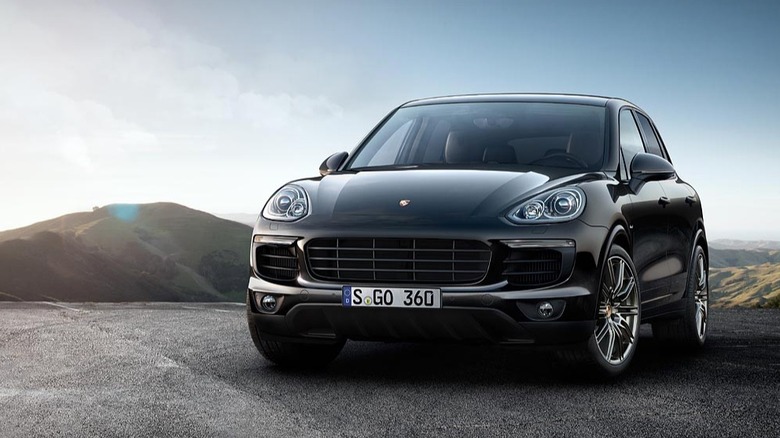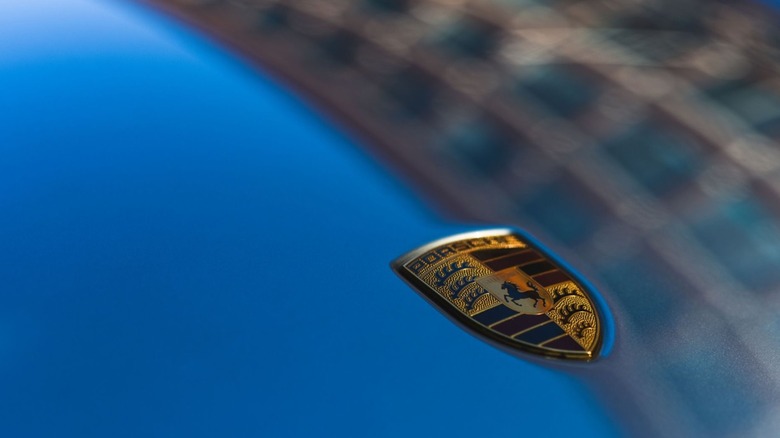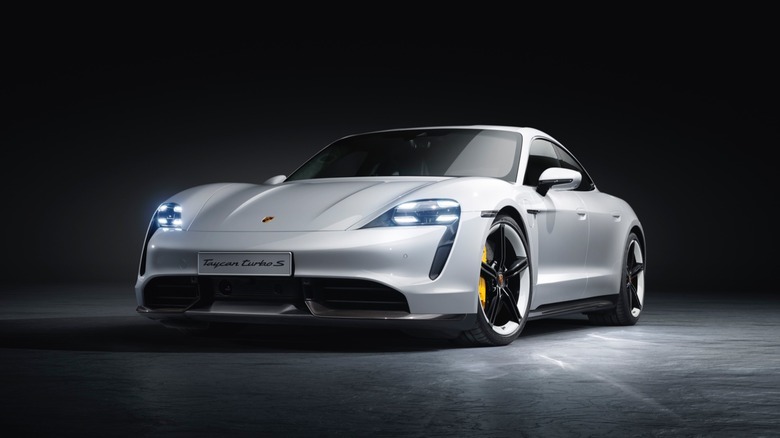Why Porsche Stopped Making The Diesel Edition Cayenne
Diesel automotive engines have been an enticing prospect for many manufacturers over the past few decades for a number of reasons. While diesel isn't a new approach to the internal combustion process, having been around since the late 1800s, modern diesel engines have gotten progressively more efficient, powerful, and environmentally friendly. In fact, they've gotten so good that the diesel vs. gasoline argument has become more relevant now than it has ever been.
Porsche jumped on the trend in 2009, with the introduction of the Porsche Cayenne Diesel, which seemingly marked a major shift for the future of the company as a whole. The Cayenne Diesel came to market using a V6 diesel engine supplied by Volkswagen Group manufacturer Audi, as they had a firmer grasp on developing diesel engines. The 2016 Cayenne Diesel was notably more fuel efficient than its gasoline-powered counterpart, with a 24 combined MPG compared to the latter's 20 combined MPG.
Despite a positive overall reception and promising efficiency from the Cayenne Diesel, it was abruptly axed from Porsche's vehicle lineup in 2017 after a comparably short 8-year lifecycle. Its run was even shorter in the United States, with the Cayenne Diesel only offered for three years between 2013 and 2016. The decision to cease production of the Cayenne Diesel was the result of a number of different factors, including shifting consumer interest and the Volkswagen "Dieselgate" scandal that turned potential buyers off German diesel vehicles in the mid-2010s.
Volkswagen's diesel emissions scandal and consumer skepticism
One of the most important factors in the Cayenne Diesel's discontinuation involved the Audi-sourced diesel engines used from its introduction in 2009 until its discontinuation in 2017. In 2014, the EPA was informed by independent researchers that there was something fishy in Volkswagen's reported diesel emissions figures. Further investigation showed that Volkswagen was installing emissions-cheating software onto the onboard computers of their diesel vehicles. "Dieselgate," as it became known, was a massive scandal that affected a number of Volkswagen-owned manufacturers, including Porsche. In total, 10.5 million VW diesel vehicles were affected worldwide, with half a million of them in the United States.
Unfortunately, the 2013-2016 Porsche Cayenne Diesel was on the list of affected vehicles due to its use of a VW 3.0L V6 that contained the cheating software. In 2015, Porsche issued a stop-sale of all Cayenne Diesels in the United States, preventing any of the new models from being sold by licensed Porsche dealers. The situation was even more dire in Europe, as Porsche was forced to recall around 21,500 Cayenne Diesel models in order to update and remove the emissions-cheating software installed in the vehicles' electronic control units.
Needless to say, the events of the VW Dieselgate scandal left a bad taste in the mouths of many consumers who felt lied to by the large manufacturer. While the brunt of the blame fell on Volkswagen themselves, Porsche was impacted too. As reported by Reuters, Porsche's CEO Oliver Blume told German newspaper Bild am Sonntag that "the diesel crisis caused (Porsche) a lot of trouble" and that "Porsche's image has suffered." In addition to other factors, the Cayenne Diesel's involvement in the Dieselgate scandal and the public's skepticism around diesel offerings by VW brands certainly played a large part in its discontinuation.
A greater demand for EV and hybrid vehicles
While Dieselgate might have been the straw that broke the camel's back for Porsche's diesel offerings, the truth is that Porsche was already shifting focus to EV and hybrid vehicle technology due to increased demand compared to diesel. According to a FAQ released by Porsche in 2020, "falling demand for diesel models and growing interest in hybrids" played a decisive role in their decision to discontinue not just the Cayenne Diesel, but their entire diesel lineup. As a result of their market research, Porsche ended production of all of their diesel models in February 2018 while investing more than six billion euros in e-mobility as of 2022.
Despite the fact that Porsche was forced to pay over $600 million for their part in Dieselgate and moved exclusively to electric options for their non-ICE powertrains, they remained adamant that they were "not demonizing diesel" and that it "remains an important form of drive technology" in their 2020 FAQ. Since the introduction of the first all-electric Porsche Taycan model in 2019, electric vehicles have become some of the brand's best-selling offerings. In Q4 of 2023, the Porsche Taycan set new sales records, with more than 40,000 units sold over the course of the year. More importantly, the Taycan made up a significant 16.4 percent of Porsche sales in 2023, not accounting for other popular electrified Porsche models including the Panamera and Cayenne E-Hybrid. It seems like Porsche might've made the right call after all.


